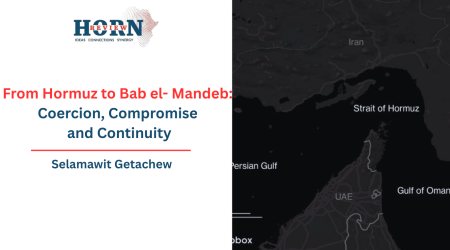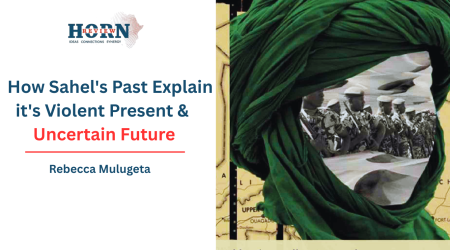
31
May
Peace as Commodity: The Shadow Economy Behind Global Intervention
How profit, power, and private actors are reshaping the future of conflict resolution
In today’s evolving global security architecture, peacekeeping is no longer purely a humanitarian endeavor. It is being transformed—subtly, and at times brazenly—into a lucrative business. The Horn of Africa, a region perennially entangled in complex conflicts, has become a living laboratory for this unsettling trend. What was once considered a sacred, collective effort toward peace is now increasingly infused with private profit motives. The result is the commercialization of peacekeeping: a global shadow economy in which conflict resolution risks becoming conflict management—for gain.
This transformation stems in part from the limits of traditional, state-led peace initiatives. As international interventions expanded in scope and complexity, the United Nations and African Union increasingly relied on external contractors for logistical operations—everything from food to transport to communications. What began as operational outsourcing quietly morphed into strategic dependence on private, often multinational, actors. This opened the door to a network of for-profit players operating beneath the radar of public scrutiny.
But reliance has not come without cost. Documented cases of illicit trade and corruption within peacekeeping missions expose the vulnerability of these operations to exploitation. The mechanisms designed to stabilize conflict zones have, in some instances, become complicit in sustaining black markets and smuggling networks. Profit has begun to rival peace as the organizing principle behind international missions, undermining both their effectiveness and legitimacy.
This trend is most visible in the rise of Private Military Organizations (PMOs)—entities such as the Wagner Group in the Central African Republic—that operate without the legal and moral accountability typically imposed on state forces. Their business model thrives on instability. In fact, swift resolution is antithetical to their interests, as long-term contracts depend on the persistence of conflict. When insecurity becomes an income stream, the logic of intervention shifts dangerously from peace enforcement to perpetual engagement.
This logic infects not only the private sector, but also the architecture of international peacekeeping itself. Forces deployed by the UN and AU are often composed of personnel from contributing states, each driven by their own foreign policy priorities. This mosaic of agendas erodes the coherence and urgency of missions. Furthermore, peacekeepers may find themselves demotivated by the stark pay disparities between themselves and private contractors, exacerbating a sense that missions are less about collective security and more about economic opportunity.
Certain state actors have exploited this dynamic. In Somalia, for example, Turkey’s military and infrastructural involvement is officially framed as stabilizing assistance. Yet observers argue that strategic access to energy reserves plays a central role. Peacekeeping becomes less about humanitarian duty and more about long-term extraction, masked by the language of international cooperation.
What emerges is a troubling network of incentives. Beneath the surface lies a deeper set of interests—a militarized ecosystem in which private contractors, intelligence agencies, and political elites benefit from continued instability. The profit motive distorts the purpose of intervention, often encouraging prolonged presence over effective exit strategies. In places like Darfur or Mogadishu, the persistence of conflict may not reflect the intractability of problems but the viability of business models built around them.
This transformation poses a profound ethical challenge. Peacekeeping was once a manifestation of shared moral responsibility—rooted in postwar ideals of justice, sovereignty, and the protection of civilians. Today, the commodification of peace has diluted those ideals. Missions that should be driven by international law and humanitarian necessity are instead shaped by opaque commercial logics. PMOs operate in legal grey zones, where human rights abuses often go unpunished and oversight mechanisms are weak or nonexistent.
The commodification of peace is not merely an operational hazard—it is a structural crisis. A peacekeeping industry driven by market imperatives is ill-suited to address the root causes of violence or to support the fragile political settlements on which lasting peace depends. It incentivizes the optics of action over its substance, and profits from the appearance of effort rather than its success.
To chart a new path, the global community must rethink its approach. First, regulatory mechanisms must be imposed to restrict the unchecked operations of private security firms in conflict zones. Human rights accountability cannot be optional. Second, incentives to troop-contributing countries must be recalibrated to reward genuine conflict resolution, not prolonged deployment. Third, international organizations must invest more heavily in building local governance structures and supporting national ownership of peace processes. Only then can interventions be designed not to sustain war economies, but to dismantle them.
Ultimately, the world must confront a hard truth: as long as peace remains profitable, it will remain elusive. Reclaiming the moral imperative of peacekeeping requires more than reforming institutions—it demands that we strip war of its commercial value. Only then can peace cease to be a product—and begin to be a promise again.
By Bethelhem Fikru,Researcher,Horn Review










